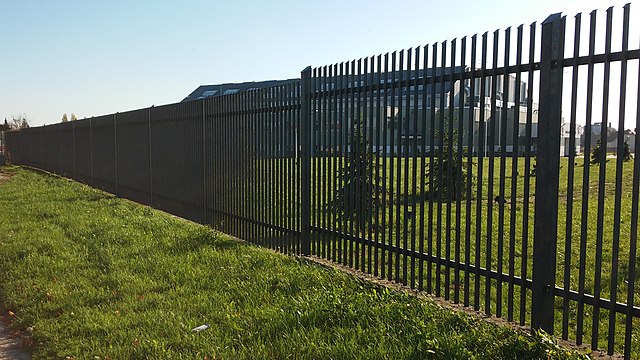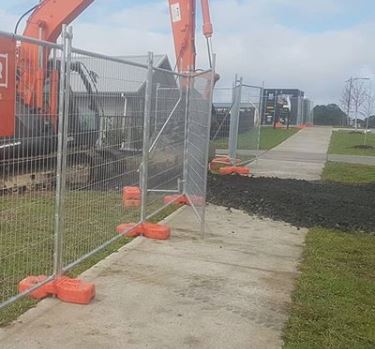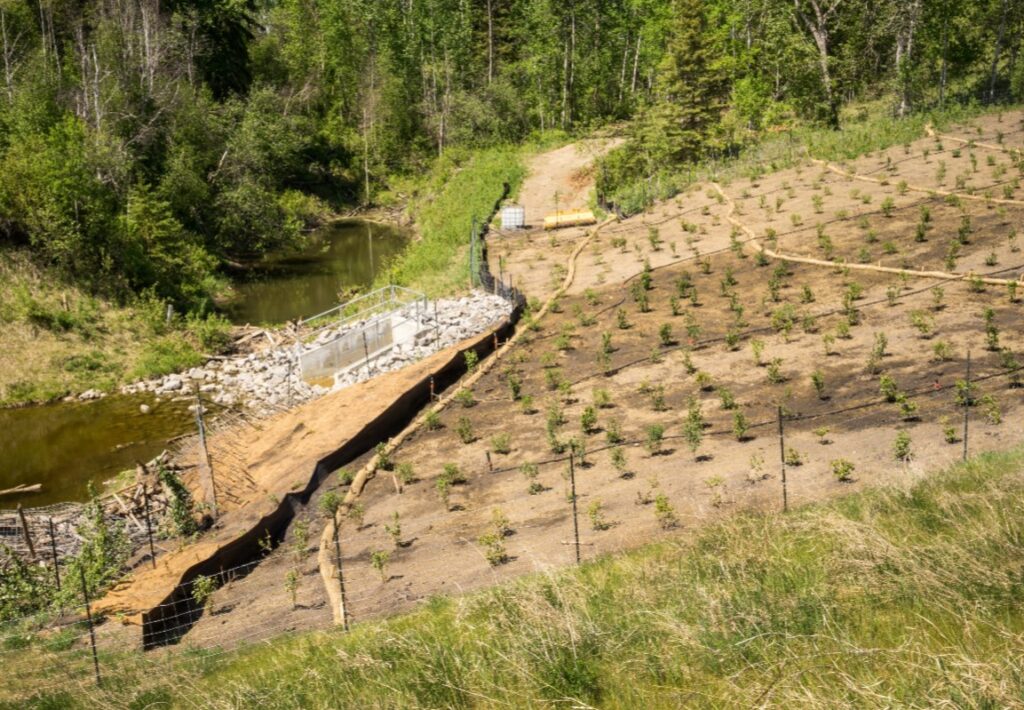
Erosion is the gradual process of wind, water, or other natural agents wearing away soil. It is a significant environmental concern that poses unique challenges for New Jersey’s diverse landscapes. From sandy shorelines to fertile farmlands, maintaining year-round erosion control is crucial for the health and longevity of our land.
Erosion poses a constant challenge to the diverse terrains across New Jersey, demanding consistent attention and strategic solutions. Catering to construction professionals, property management, HOA organizations, and large commercial property owners, our comprehensive erosion control services offer tailored, year-round strategies to fortify the region’s landscapes against natural wear and tear.
The Importance of Year-Round Erosion Control
In the construction industry and property management, the need for year-round erosion control strategies is indispensable. New Jersey’s landscapes face varying weather conditions, from snowmelt and heavy rains in early spring to scorching summer heat. These weather patterns make the land susceptible to erosion, demanding ongoing protective measures.
Why is Year-Round Erosion Control Necessary?
Throughout the year, different weather conditions can contribute to the erosion of soil. In the early spring, for instance, melting snow and heavy rains can wash away the topsoil, leaving your land vulnerable to further damage. Likewise, during the hot summer months, wind and water can easily carry away loose, dry soil.
Consistent erosion control efforts are essential to safeguard the integrity of commercial properties and construction sites. Our specialized approach includes the utilization of eco-friendly materials like coconut-based mats and logs, strategically designed to shield against erosive elements. These organic solutions not only combat soil erosion effectively but also promote stable soil structure, ensuring durability across all seasons.
Critical Consequences of Overlooking Erosion Control Projects
Failure to address these projects can result in severe ramifications, notably the loss of nutrient-rich topsoil essential for nurturing shoreline plants and green leaves. Neglecting this aspect could lead to the formation of barren patches, not only aesthetically unpleasant but also detrimental to the ecosystem’s health.
Environmental Impacts and Integrated Pest Management
Neglected soil erosion often translates into water pollution, carrying pesticides and fertilizers into our water bodies, posing grave environmental hazards. Embracing integrated pest management aligns with these goals, as healthy soil discourages pests that thrive in eroded landscapes. Leveraging coconut mats as floating barriers aids in both pest deterrence and erosion prevention, fostering soil health year-round.
Navigating Seasonal Erosion Challenges in New Jersey
The Garden State experiences seasonal intricacies challenging soil stabilization efforts. Tackling these unique hurdles calls for eco-friendly measures, such as employing organic solutions like coconut husk material, coconut fiber mats, and coconut coir logs. Derived from sturdy coconut shells, these materials are pivotal for soil stability and fostering thriving landscapes.
Combatting Seasonal Variations with Sustainable Solutions
Embracing these natural materials within your soil stabilization strategy minimizes soil erosion, particularly in areas prone to cold weather, severely eroded shorelines, or eroded river banks. The robust texture of coconut coir logs and fiber mats acts as a formidable barrier against erosion while nurturing conducive conditions for lush landscape growth.
Exploring Seasonal Dynamics: New Jersey’s Erosion Control Challenges
Understanding the seasonal impact on soil stabilization in New Jersey is crucial to protect landscapes year-round. Let’s uncover examples that spotlight these challenges across the Garden State.
Winter: Freezing Temps and Snowfall
Winter hits New Jersey with fierce freezing temperatures and heavy snowfall, triggering a cycle of freeze-thaw that displaces soil. When the snow melts, unprotected soil washes away, causing significant erosion. In 2018, extensive snowfall in northern New Jersey led to Raritan River bank erosion, causing damage to properties and infrastructure.
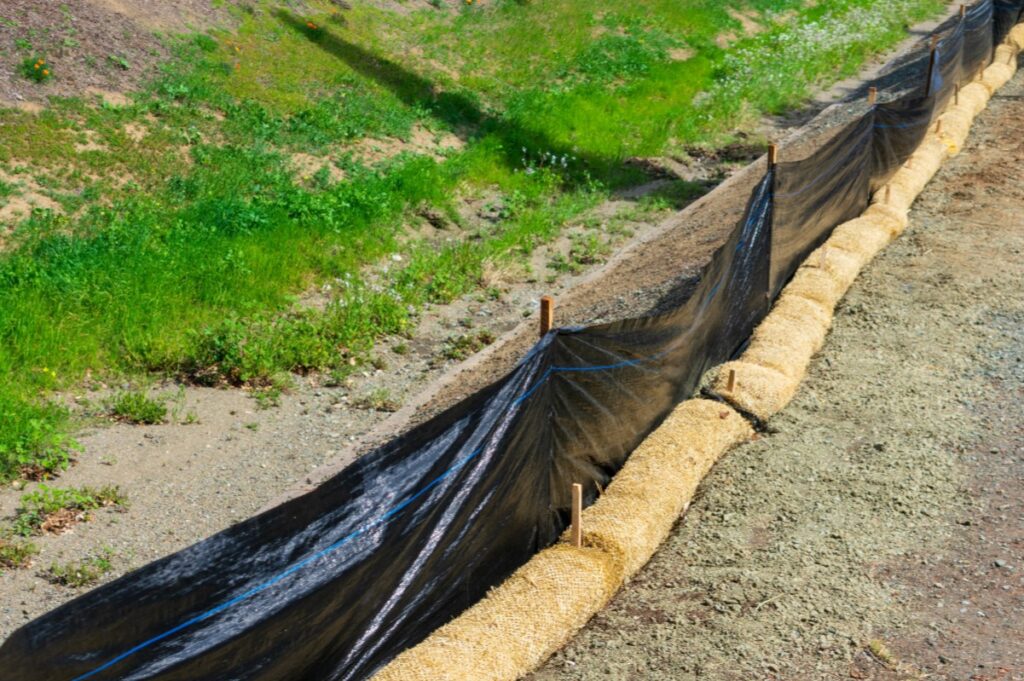
Spring: Heavy Rains and Gully Formation
Spring in New Jersey brings heavy rains that easily wash away loose soil, causing gully formation and landscape degradation. In 2019, the Passaic River Basin faced spring flooding, causing widespread soil erosion, impacting farmlands, and disrupting local ecosystems.
Summer: Hot, Dry Conditions and Beach Erosion
Summers in New Jersey, often hot and dry, lead to soil drying and cracking, making soil particles prone to wind and storm erosion. In 2020, the Jersey Shore saw significant beach erosion due to dry conditions and storm surges, impacting tourism and coastal properties.
Fall: Leaf Fall and Pathway Damage
As leaves fall in fall, improper management can smother grass and create bare spots vulnerable to erosion. Additionally, heavy fall rains can displace soil. In 2021, heavy rainfall in fall caused soil erosion in parks and gardens, damaging pathways and plantings across New Jersey.
Year-Round Strategies: Tailored Solutions
To combat these seasonal challenges, customized strategies are essential for maintaining New Jersey’s landscapes:
Winter: Managing Snow Melt and Freezing Temps
Utilize coconut coir logs and mats strategically to manage snowmelt, reducing soil displacement and providing insulation against the freeze-thaw cycle. Plant cold-hardy cover crops in late fall to stabilize the soil during winter.
Spring: Managing Heavy Rains, Plant Growth, and Soil Stability
In New Jersey, spring brings not only heavy rains but also vigorous plant growth, posing challenges for soil stability. To combat erosion during these seasons of abundance, consider the implementation of rain gardens tailored to capture runoff and slow soil erosion amidst the deluge of spring showers. Incorporating native plants within these rain gardens not only enhances their efficiency in managing runoff but also fosters healthy growth, outcompeting invasive grassy weeds and broadleaf weeds.
Additionally, the utilization of coconut coir products proves instrumental in stabilizing lawn areas, particularly those perched on steep slopes vulnerable to washouts during intense spring downpours. These organic solutions fortify the soil structure, anchoring it against erosion while fostering healthy growth for a resilient and sustainable landscape.
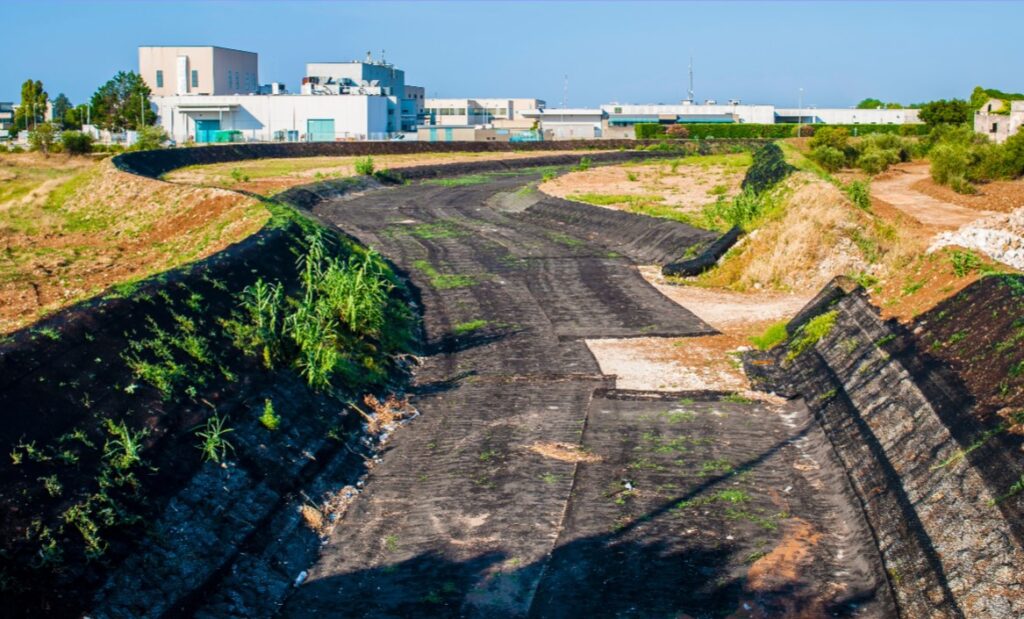
Summer: Dealing with Dry Conditions and Heat
Mulch with coconut husk materials to retain soil moisture and shield against sun-induced drying. Plant drought-tolerant native species with deep root systems for soil stabilization.
Fall: Preparing for Leaf Fall and Pre-winter Weather
Regularly rake and compost leaves to prevent smothering and bare spots. Plant cover crops to safeguard the soil during winter while improving its structure and health.
A Sustainable Future
The challenge of soil erosion in New Jersey is a complex problem that requires dedicated year-round attention and the use of tailored strategies for each season. By understanding the unique challenges presented by each season and implementing effective measures such as the use of coconut coir products, rain gardens, mulching, and planting of cover crops, we can significantly reduce the impact of erosion.
However, it’s vital to remember that erosion control is not a one-time task but a continuous effort. While the challenges are great, the rewards of preserving our landscapes, protecting our ecosystems, and ensuring a sustainable future for New Jersey are well worth the effort. It’s a responsibility we all share, and together, we can make a lasting impact.

